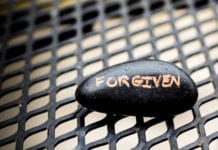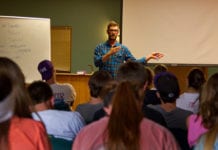I spoke with a pastor yesterday who has given over 20 years of his life to pulling off the attractional church model. He was schooled and reproduced the seeker model in multiple locations. Then about ten years ago, he tried to merge the seeker model with a relational approach to small groups. In other words, the seeker service was used to lure them in and then they tried to group them in relational settings that moved beyond programmatic small groups. But he said that the seeker model was too much work and drained all their leadership from the energy needed to develop the relational wing of of church life.
Now he is burned out on programmatic church but remains committed to the church. I commend him for this. Many get to this place and just get mad at the church. He wants to participate in something relational and organic that is not dependent upon massive programs. He wants to quit splitting up the family in the church into life-stages and allow the family to seek God together. Hope mixed with huge questions swirl within him.
Hard questions!
Important questions!
Too often we stop asking them because it’s just easier to fit within the status quo. After all he was successful in building churches. Why would he question it? Why would he look for something else when there are so many attractional churches that are still working, and working quite well?
Too often we provide easy answers to his very difficult questions. For instance:
- Get back in the church and do the work.
- Here’s a model for doing what you want to do. Copy what this book tells you to do.
- Throw out everything traditional and start over.
- Get back to what they were doing in the New Testament. That’s all you need to do.
- Go to China and do what they do. Look how many Christians there are there and they don’t have church programs.
- And of course there is the “you don’t need church” option.
In some way or another, I have participated in all but the last option. The inference I’ve been told and that I have told others is this: “Don’t ask these hard questions. Just follow my answer, my plan and then we can get on with what God wants.”
But what if God is in the questions? What if the way we discover God’s future is through our tough, hard, uncomfortable questions. What if we have to face them even though we don’t even know the exact nature of the problem, much less the solution. What if the seed-bed of creative answers will arise as we give space for people to ask such questions?
God is at work through his people in ways that make us feel out of control.










